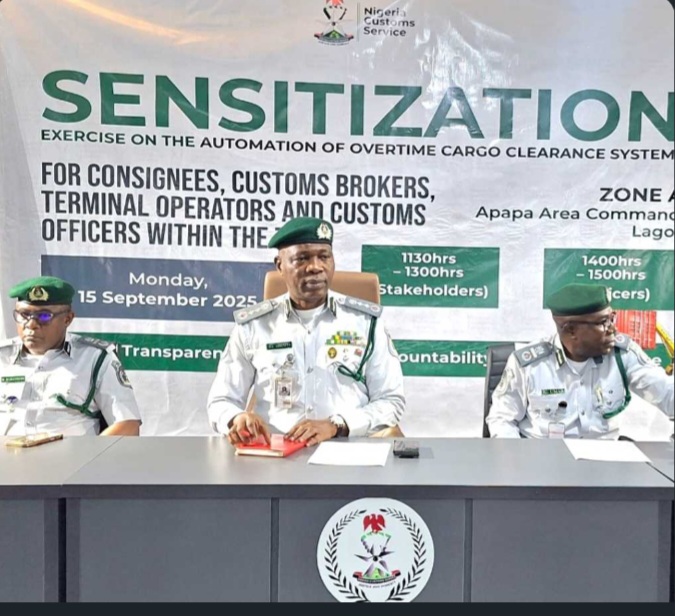To tackle persistent port congestion and enhance transparency, the Nigeria Customs Service (NCS) has rolled out a new automated system for clearing overtime cargo at the country’s ports.
The system is designed to simplify cargo clearance, minimize human interference, and ensure fair disposal of goods that exceed their allowed dwell time. Under Section 30(1) of the NCSA 2023, consignees now have the option to apply for a 90-day extension beyond the initial 30-day window. After this period, uncleared cargo will be automatically processed for disposal to free up space for incoming shipments.
At a stakeholder sensitization event in Lagos, Comptroller General of Customs, Adewale Adeniyi, highlighted that over half of the complaints he receives daily are related to overtime cargo. He emphasized that the initiative is not about revenue generation—less than 1% of NCS’s N6.3 trillion revenue in 2024 came from overtime cargo sales.
“Our goal is to facilitate trade, manage port space efficiently, and inject transparency into the system,” Adeniyi said.
To prevent delays in critical imports, NCS has established dedicated desks for: Government projects (e.g., power, roads, health, education), organized private sector and manufacturers, as well as diplomatic missions and international organizations.
These desks ensure fast-tracked clearance for consignments vital to national development and economic growth.
Adeniyi warned that the system is fortified against misuse. Intelligence units will monitor for fraudulent claims, and only legitimate consignees will be able to access the automated process.
Prince Segun Oduntan, Vice President of the Association of Nigerian Licensed Customs Agents (ANLCA), praised the initiative for its potential to ease congestion. However, he urged vigilance against abuse and stressed that consignees who intentionally abandon cargo should not benefit from the new system.





